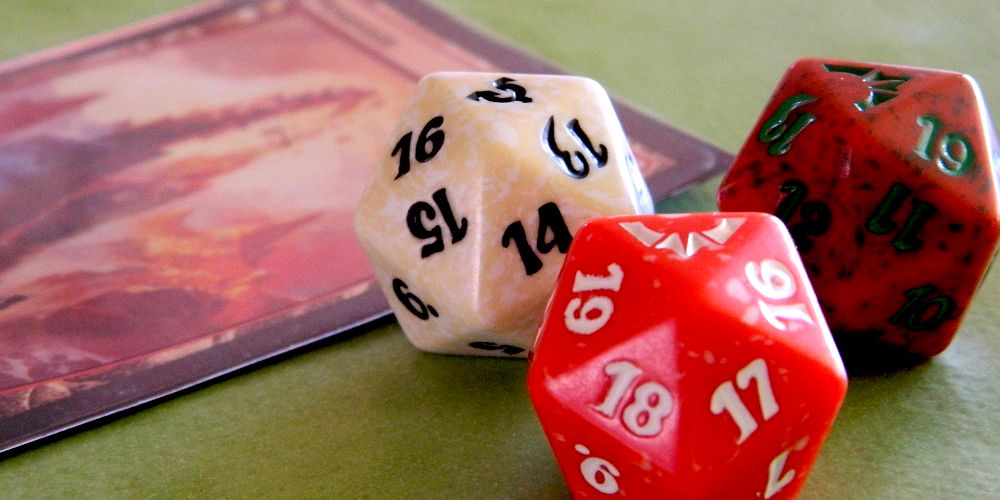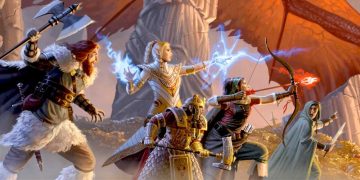One of the best parts of playing D&D is the chance to tell a story. But not every story has a traditional do-gooder hero, and not every D&D adventurer has a heart of gold and good intentions.
Indeed, being able to play an evil character is one of the big draws of D&D—but how do you play an evil D&D character without clashing with or annoying the rest of your party?
For all you anti-heroes out there, we've put together a quick guide on how to properly play an evil character in D&D without ruining your campaigns or friendships.
Always Talk to Your DM First
Every character creation journey should start by talking to your Dungeon Master and laying out your intentions. Letting them know you want to play an evil PC is the first step.
Whether it's a pre-made adventure or a homebrew campaign, running a D&D game is a lot of work for DMs—and the last thing you want to do is make their life hell.
Never throw an evil-aligned character into the mix without a bit of warning for your DM.
Talking with your DM at the start of any campaign is good advice no matter what your character concept is, but it's especially important when playing an evil PC.
Your DM will want to work with you to make sure that your character isn't disruptive to the rest of the party. While most DMs won't have an outright ban on evil PCs, they do want to make sure your evil character can still coexist with the rest of the group.
The DM might help you come up with a backstory or motivation that lends itself to working with the other characters, or they might give you limits on how far your villainy can take you.
You should have fun with the character you want to play, but remember that the DM exists to make sure everyone at the table has fun, not just you. Listen to them!
Understand What It Means to Be Evil
"Evil" in D&D doesn't mean burning down every village you encounter or kicking puppies when the opportunity presents itself. I mean, it can... but just like in our world, evil tends to be a bit more subtle and nuanced than that.
The D&D Player's Handbook does a good job of defining the nine possible alignments—and the common thread within the evil alignments is the element of selfishness.
Evil isn't always an outward act of violence; instead, it's often a way of viewing the world (and the people within it) as something to be used and/or manipulated for personal gain.
Evil characters act in their own self-interest, and they're willing to exploit or even sacrifice those around them in order to further their own goals and agendas.
Which means evil characters can be helpful. There's no reason why an evil character can't provide aid to companions, provided it makes sense to their motivations.
For example, an evil wizard might think the paladin is preachy and self-righteous, but they can be a big fan of how that paladin keeps monsters away from the spellcasters.
Be Part of the Party
While it can be easy to see your evil PC as someone who isn't truly part of the party, the ultimate truth of D&D (and most TTRPGs) is that it's a cooperative game at the end of the day.
Even if your character doesn't share the same morals or viewpoints as the rest of the party, your character should at least share a common goal and/or enemy. It could be the pursuit of wealth, the defeat of a greater evil, or simply the protection that comes from traveling as a group.
This group dynamic offers opportunities to both influence and be influenced. An evil character might try to manipulate someone into doing their bidding, or they might find unexpected common ground with the good-aligned characters they're traveling with.
A fantastic story awaits at the heart of every D&D adventure, but only if you let your PC mingle with the rest of the party.
If you want to corrupt another character, always let the player know ahead of time. They might collaborate on ideas of how to make it happen, or they might not like the idea—either way, the important thing is that you never force something on someone.
The Goal Is to Tell an Awesome Story
Remember that the purpose of D&D is to write a living story where each player is one of many writers. The DM crafts the world, and the players weave their characters' tales through the world.
The most interesting stories have characters that change. That's also true in D&D campaigns and adventures.
No character should be the same at the end as they were at the start. They should grow and develop because of the things that happen along the way. Otherwise, what was the point?
Consider how the journey will impact your evil character. Will they learn to see the value in playing nice with others? Will they have a conversion story? Do they find a renewed contempt for do-gooders, having been exposed to them for so long?
Being open to the possibility of change will open all sorts of doors as a storyteller—and, ultimately, make the game more fun for yourself and everyone else in the group.




